|
Overview of the discussion session on the 'United Nations Convention against Cybercrime for and by Youth'. (Photo: Thanh Long) |
The discussion session was attended by the United Nations Resident Coordinator in Vietnam, Pauline Tamesis, and moderated by the Director of Gen Zero and Pioneer Member of the Digital Trust Alliance under the Ministry of Defence , Miss Le Nguyen Bao Ngoc.
Speakers at the panel discussion included international experts, government representatives, and outstanding young people, such as Jordi Martin Domingo from the United Nations Office on Drugs and Crime (UNODC), Canadian High Commissioner Frédéric Margotton, and two Vietnamese youth representatives: Huynh Duy Thong from RMIT University, founder of MigPedia – an AI application for fraud prevention and safe migration support; and Nguyen Quoc Anh, CEO of IT'S T TIME – who developed a "Digital First Aid Kit" to help the transgender community cope with cybercrime.
|
United Nations Resident Coordinator in Vietnam Pauline Tamesis speaks at the event. (Photo: Thanh Long) |
A call to action from the Hanoi Convention
In her opening remarks at the discussion session, the United Nations Resident Coordinator in Vietnam, Pauline Tamesis, highlighted the significance of the Hanoi Convention – the first global legal instrument on cybercrime adopted within the framework of the United Nations in over two decades.
Ms. Pauline Tamesis emphasized the crucial role of prevention in the fight against cybercrime. More than just a legal document, this Convention is a blueprint for international cooperation in combating cybercrime. The Convention equips signatory parties with the tools to prevent, investigate, and prosecute cybercrimes, while fostering cooperation among governments, organizations, businesses, and civil society groups.
"The United Nations calls for the full and effective implementation of the Hanoi Convention in accordance with international human rights obligations. This Convention promotes a safe, inclusive, and responsible digital space and calls for multi-sectoral cooperation to build trust online – key to a digital transformation that leaves no one behind," emphasized the UN Resident Coordinator in Vietnam.
Pointing out that half the world's population is under 30, Pauline Tamesis argues that young people are not only the primary users of digital platforms but also at high risk of being targeted by cybercriminals. Youth are also agents of change, driving advocacy, raising awareness, and developing innovative solutions for online safety and human rights in the digital age. For young people, the online space is not separate from reality – it is reality. Therefore, ensuring the meaningful and safe participation of young people in shaping responses to cybercrime is essential.
"Although youth are not explicitly mentioned in the Convention, its goal is to ensure a safe and robust digital future. We, the United Nations in Vietnam, see this event as an opportunity to begin an important dialogue: how to empower young people to become digital citizens? How to equip them with the knowledge and skills to protect themselves and others from cybercrime? And how to create space for them to innovate, freely express themselves, and shape the digital future?", said Pauline Tamesis.
The theme of the discussion session, "The United Nations Convention on Cybercrime Against Youth and for Youth," is to ensure that young people feel safe and free in their online lives – freedom of expression, freedom of creativity, and freedom of development. This means recognizing young people as individuals with leadership potential.
"Let this Convention be not just a legal instrument, but also a call to action. A call to build a safe, inclusive, and empowering digital world for all – especially for our youth," concluded the UN Resident Coordinator in Vietnam.
|
Miss Le Nguyen Bao Ngoc emphasized the purpose and significance of the discussion session. (Photo: Thanh Long) |
Speaking at the event, Miss Le Nguyen Bao Ngoc conveyed the message: "We are here not only to talk about cybercrime, but also to redefine the concept of 'trust and safety' in the digital age." In the online world, where people are more connected than ever, young people are the most dynamic, creative, but also the most vulnerable group. She emphasized that this paradox is not a weakness, but a source of strength for the younger generation to become pioneers in creating a safer, more civilized, and humane online space.
According to Bao Ngoc, when it comes to cybercrime, it's no longer a distant issue, but a very real problem for young people, such as online fraud, identity theft, the dissemination of private content without consent, or other violations of privacy rights. Therefore, the discussion session was organized to find preventive solutions, share international experiences, and raise awareness of digital safety among young people.
|
UNODC representative Jordi Martin Domingo points out the provisions relating to youth rights in the Hanoi Convention. (Source: IOM) |
During the discussion, UNODC representative Jordi Martin Domingo pointed out provisions related to youth rights in the Hanoi Convention: youth exposure to cybercrime and related preventive measures (Article 53), as well as protective measures, focusing on crimes under the Hanoi Convention that affect youth – unauthorized access (Article 7), data tampering (Article 9), theft and fraud (Article 13), and abuse of private images (Article 16). Taking the youth perspective as the central focus, Mr. Jordi Martin Domingo stated that promoting the Hanoi Convention and the Global Digital Compact (GDC) will lead to a safer and more inclusive cyberspace.
Through the speakers' presentations, the discussion contributed to raising awareness about cybercrime affecting young people and advocating for the implementation of the Hanoi Convention and the GDC. International speakers and Vietnamese youth speakers also shared policies and technologies for prevention and protection, emphasizing equality and non-discrimination.
The discussion concluded with strong consensus on the need to empower young people to become digital citizens and agents of change – demonstrating their contributions while ensuring safe and inclusive participation in the digital future.
|
The discussion took place within the framework of the Opening Ceremony and Summit of the United Nations Convention against Cybercrime. (Photo: Thanh Long) |
A force for creating a safe and humane cyberspace.
Speaking to the World and Vietnam Newspaper at the event, Huynh Duy Thong, a student at RMIT University and a member of the "Youth Core" group of the International Organization for Migration (IOM) and the Gen Zi Cu Project on promoting safe migration and preventing human trafficking, provided details about the MigPedia initiative – a digital platform developed by young people to help young Vietnamese people migrate safely, legally, and with reliable information. The application offers tools such as Mig-AI for virtual consultations, Mig-Folder for document management, and Mig-Edu for learning digital and legal skills before going abroad.
What motivated Duy Thong and his group to launch this initiative were the real-life stories of young people being scammed online or exploited for labor while studying abroad or working overseas. Duy Thong and his friends believe that only when young people are equipped with knowledge and their own voices can they stop sophisticated forms of human trafficking in the digital age.
According to a member of IOM's "Youth Core" group, the Hanoi Convention is a historic milestone in the global effort to protect people in cyberspace, especially the younger generation.
"For a generation born and raised with the Internet – the digital space is both a place for learning, working, and creating, but also harbors many risks. This Convention not only helps build a global legal framework to combat cybercrime, but also affirms that the right to safety and respect online is a fundamental right of every digital citizen. I believe that the greatest significance of the Hanoi Convention lies in giving young people confidence and responsibility – believing that the voices of young people can contribute to shaping policies, and the responsibility to behave ethically, knowing how to protect themselves and the community in the online world," Duy Thong emphasized.
|
Huynh Duy Thong, a student at RMIT University, is a member of IOM's "Youth Core" group and the Gen Zi Cu Project on promoting safe migration and preventing human trafficking. (Source: IOM) |
Looking towards a digital future full of opportunities but also many challenges, Duy Thong believes that Vietnamese youth can absolutely become "creators" rather than just "users" of cyberspace. Young people can develop more humane technologies, spread critical thinking, and support each other in identifying and reporting harmful online behavior.
"More importantly, every young person – whether a student or a programmer – can contribute to building a safe digital future with a small action each day: sharing accurate information, protecting the privacy of others, and spreading a culture of respect in the online world," urged a member of IOM's "Youth Core" group.
|
The delegates pose for a commemorative photo. (Source: IOM) |
Source: https://baoquocte.vn/cong-uoc-ha-noi-trao-quyen-cho-thanh-nien-dinh-hinh-tuong-lai-so-332328.html


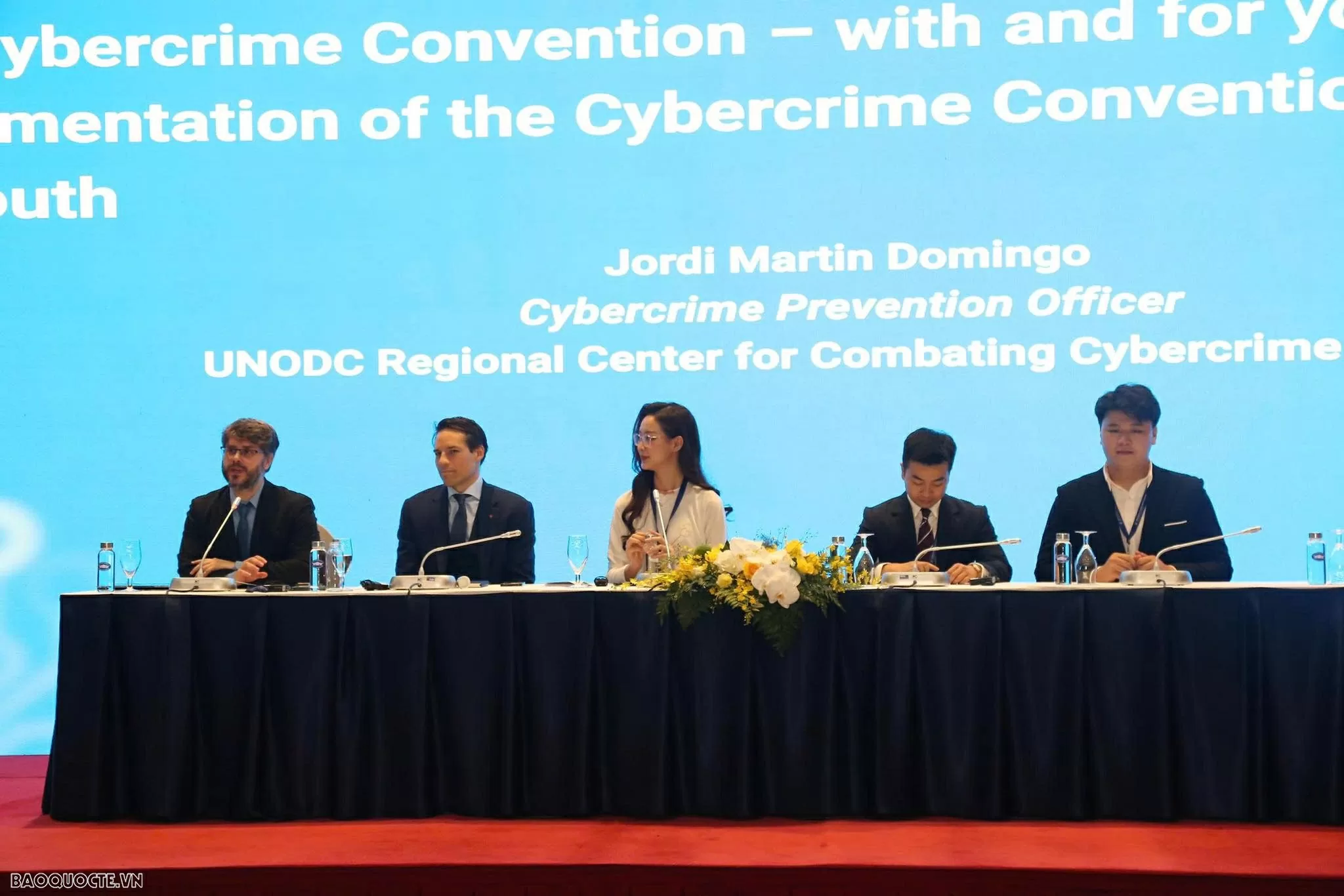
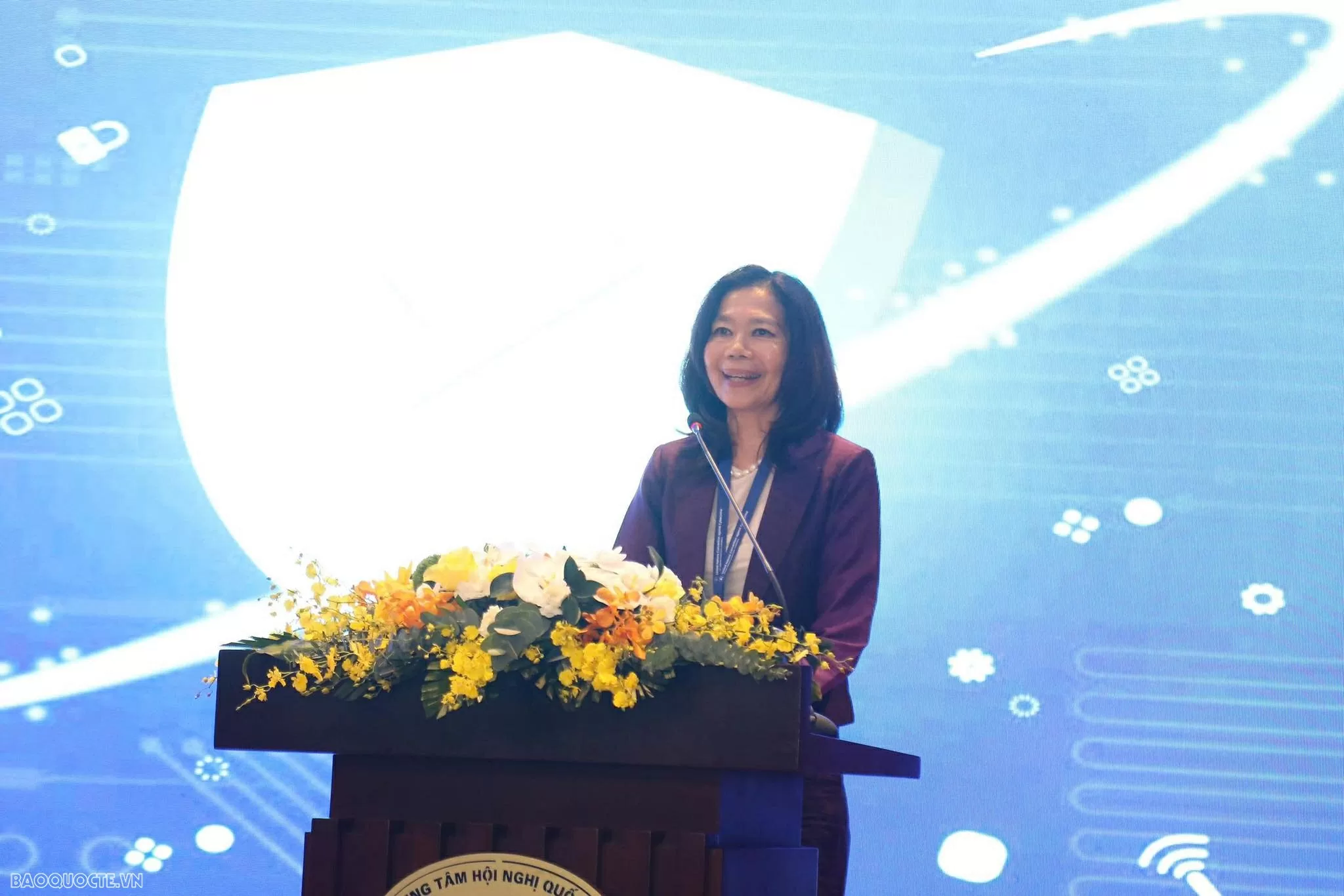
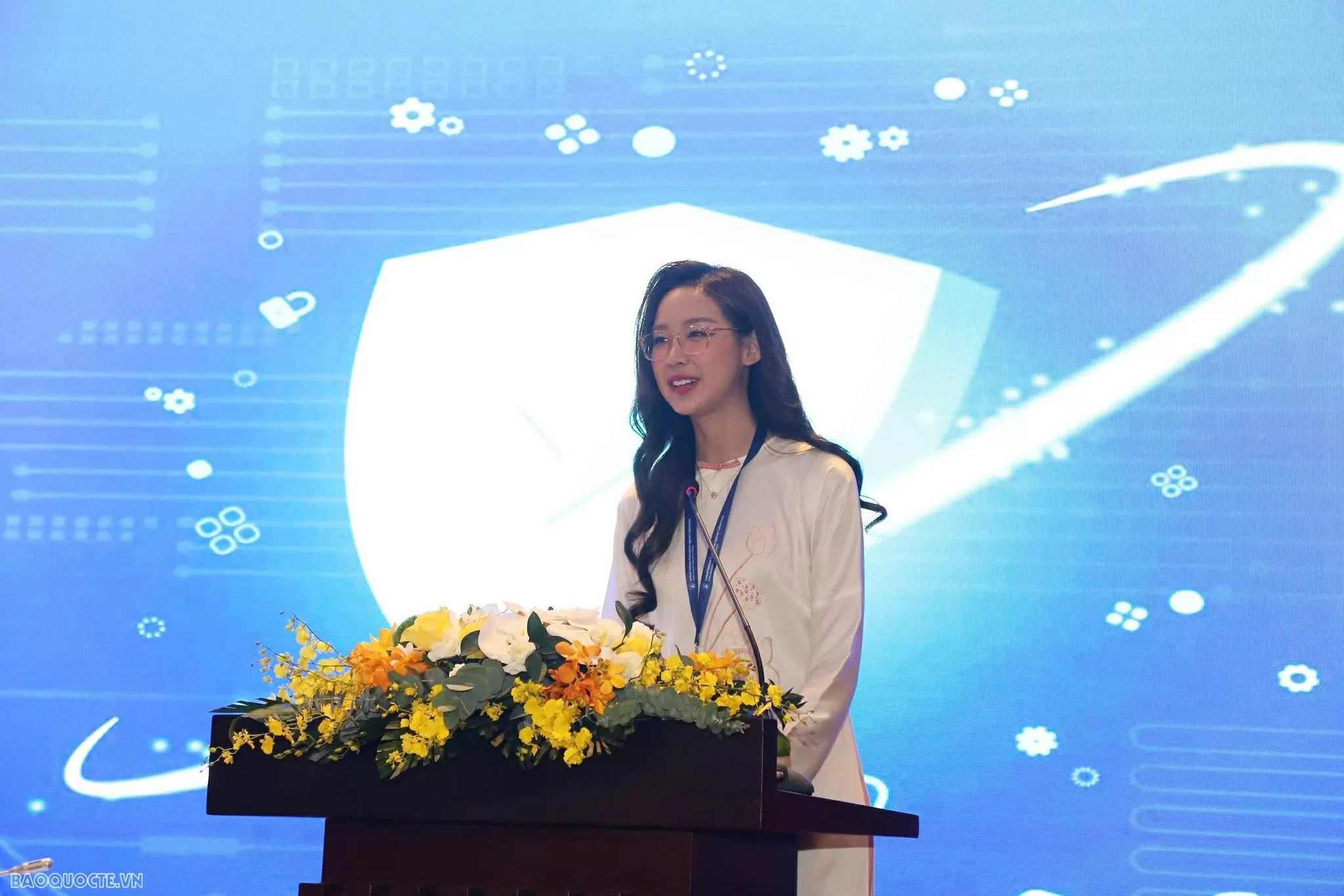
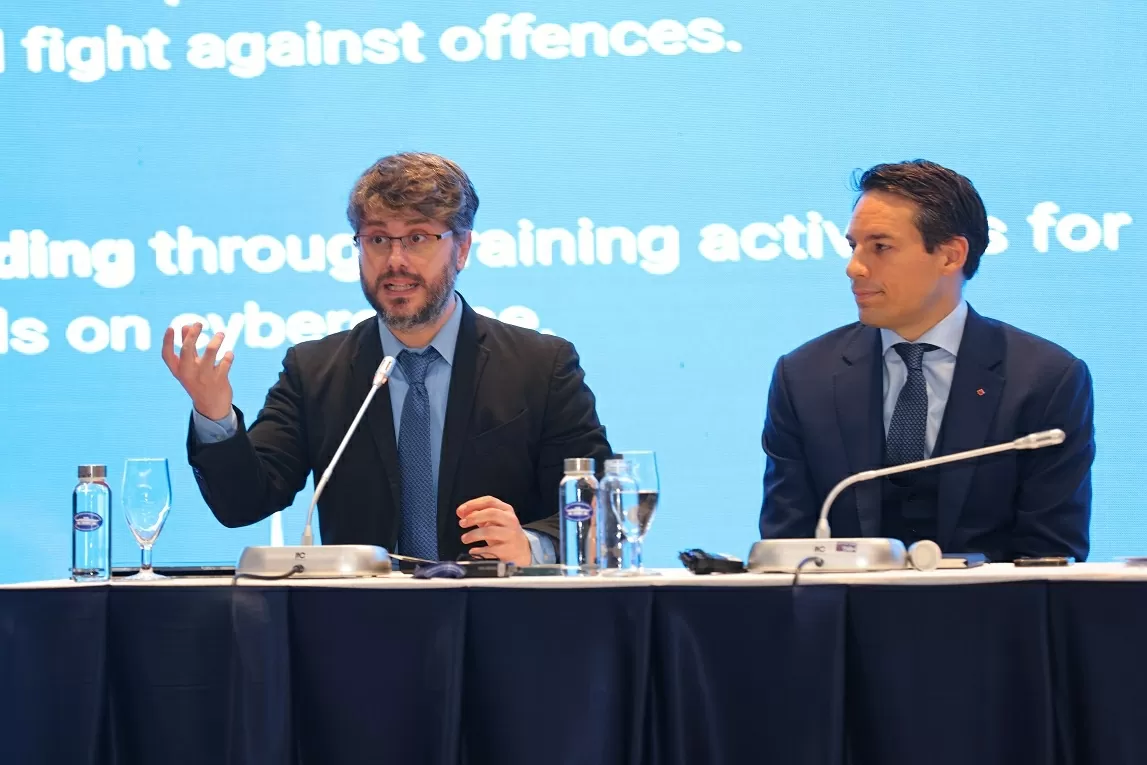
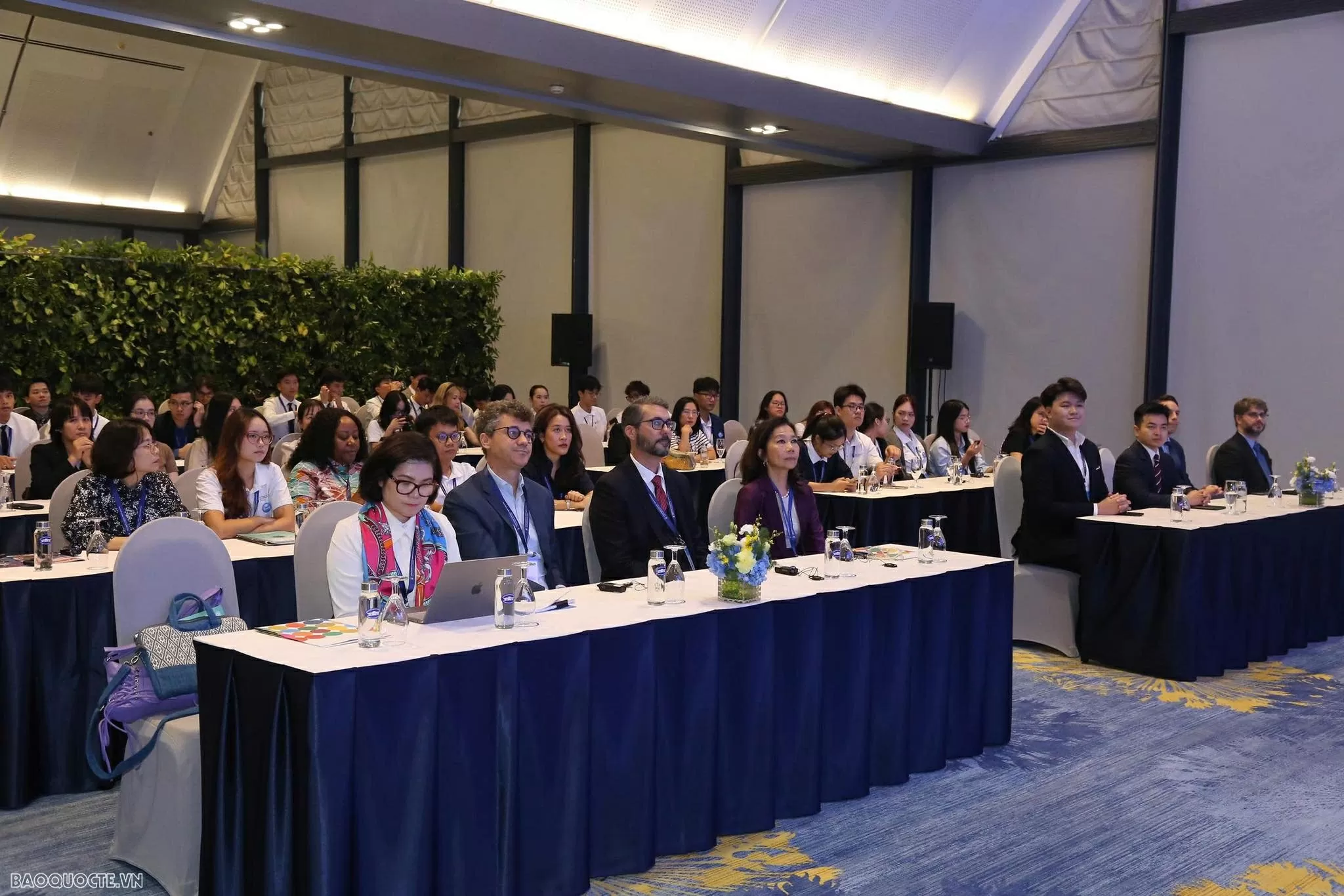
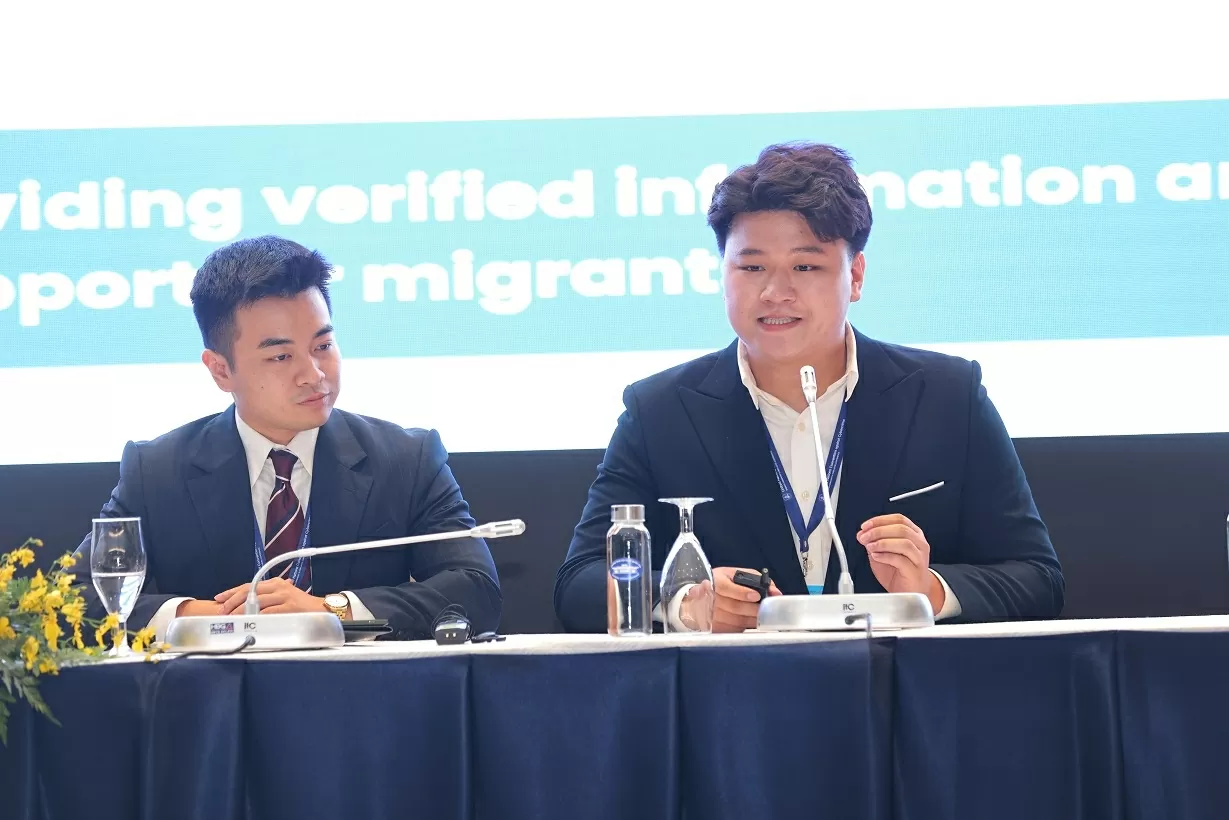
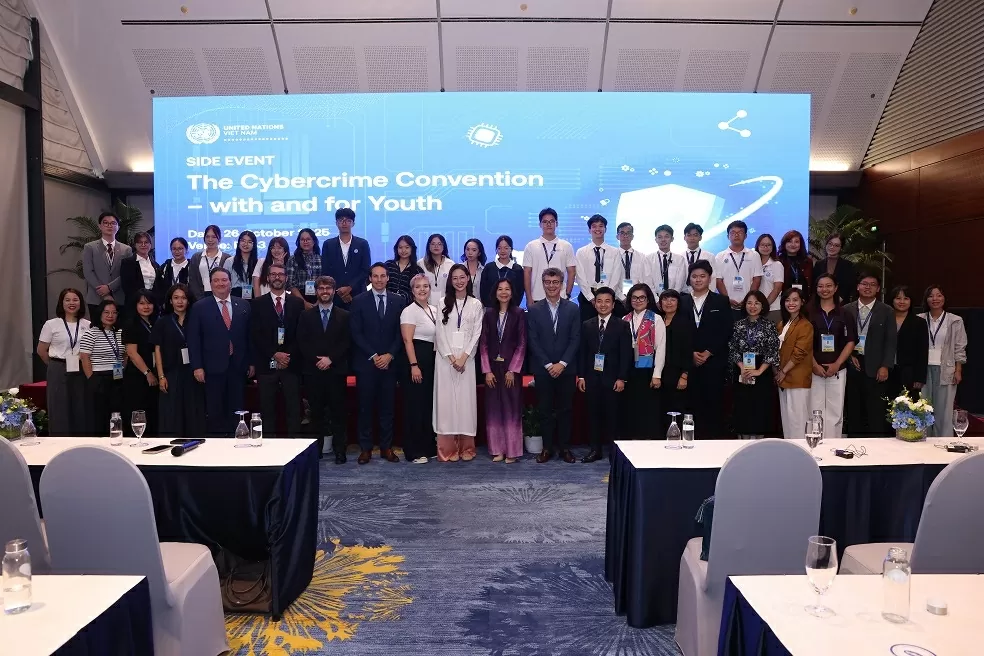





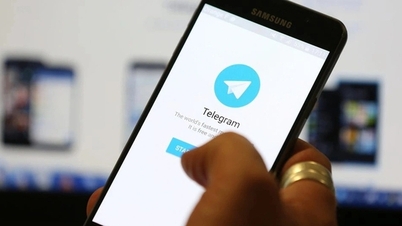





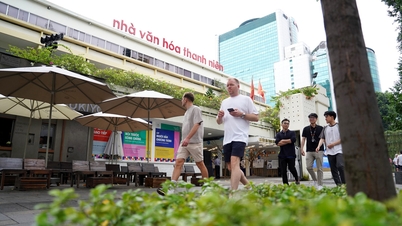

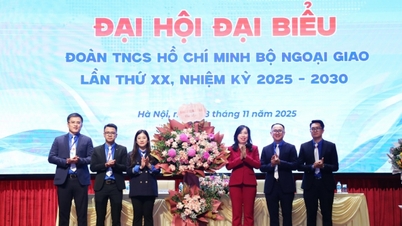








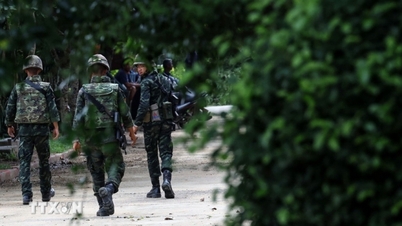
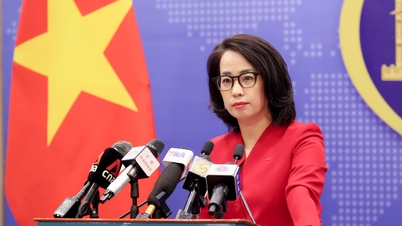
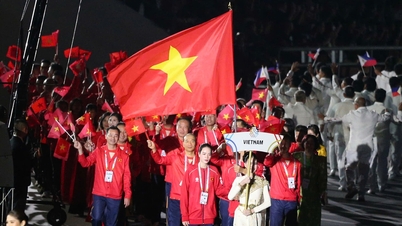




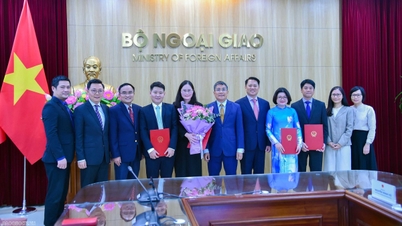

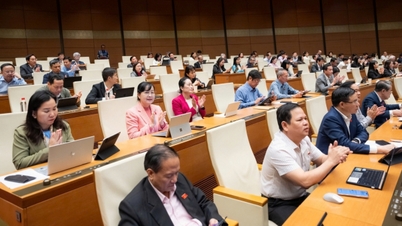


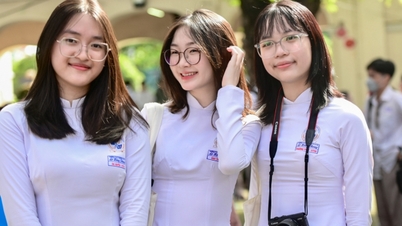
![[Photo] Prime Minister Pham Minh Chinh holds a phone call with the CEO of Russia's Rosatom Corporation.](/_next/image?url=https%3A%2F%2Fvphoto.vietnam.vn%2Fthumb%2F1200x675%2Fvietnam%2Fresource%2FIMAGE%2F2025%2F12%2F11%2F1765464552365_dsc-5295-jpg.webp&w=3840&q=75)




















































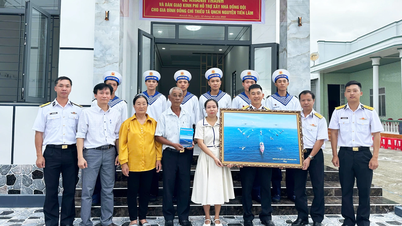



















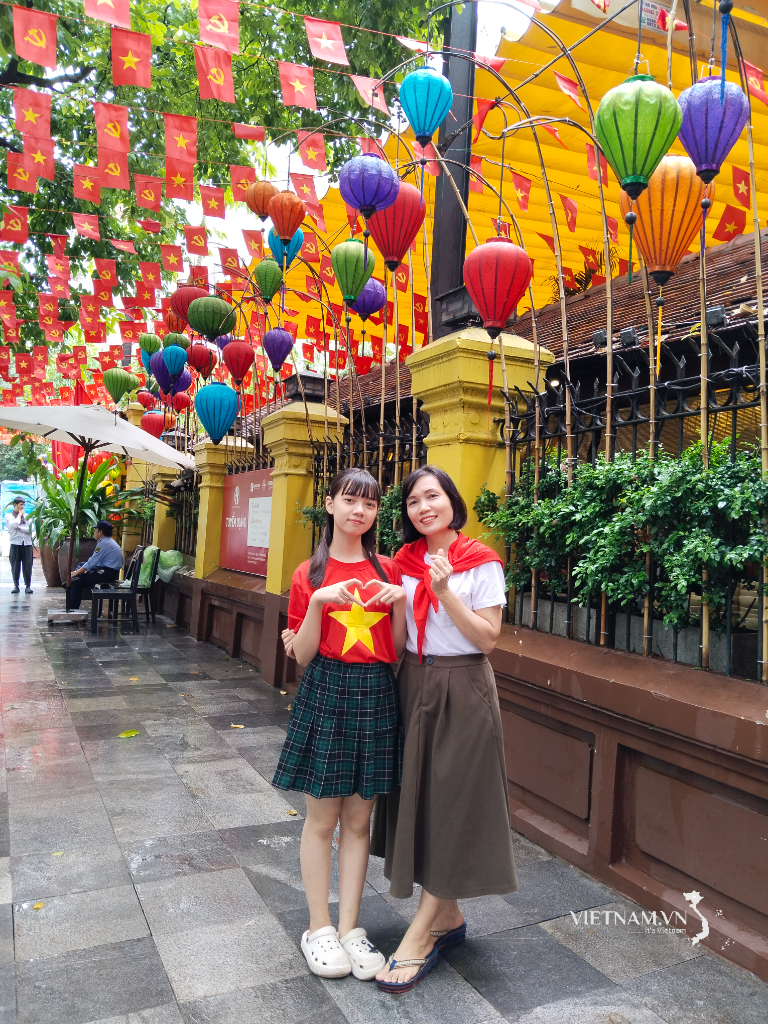
Comment (0)